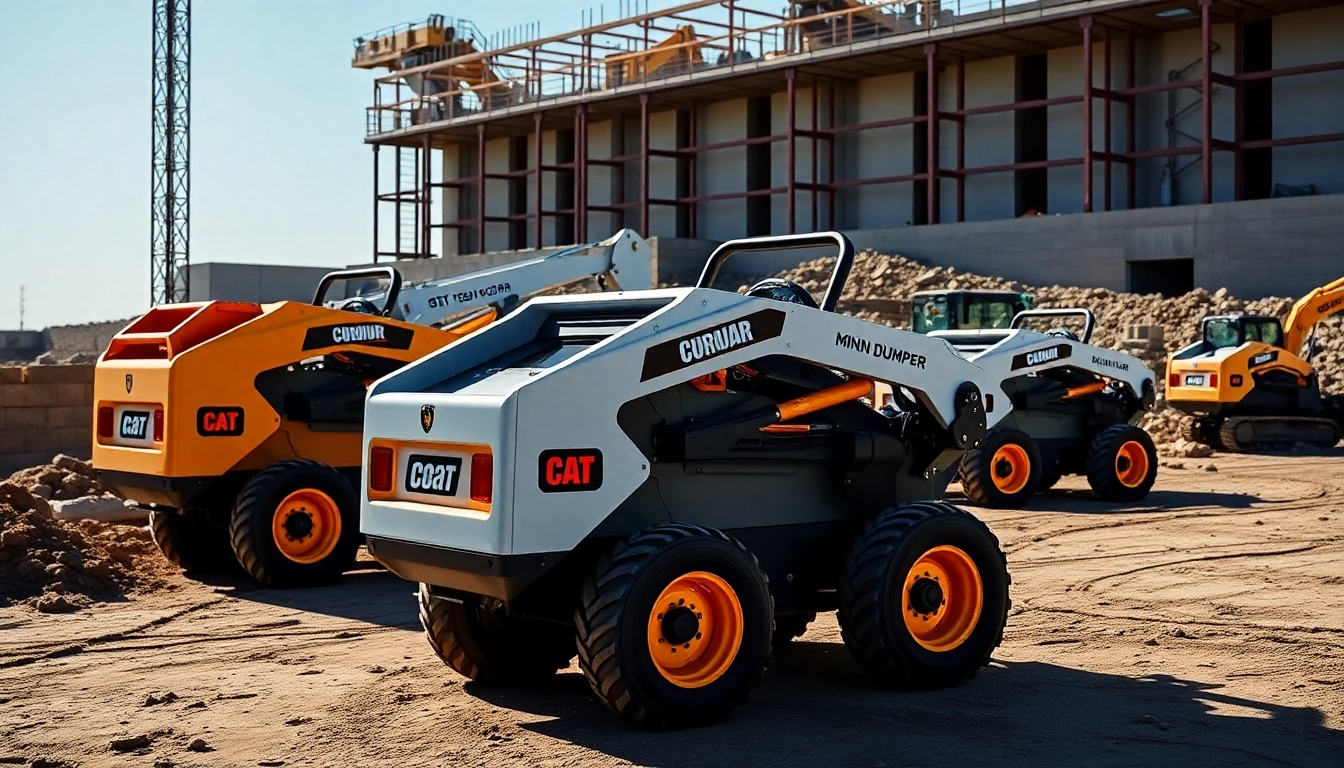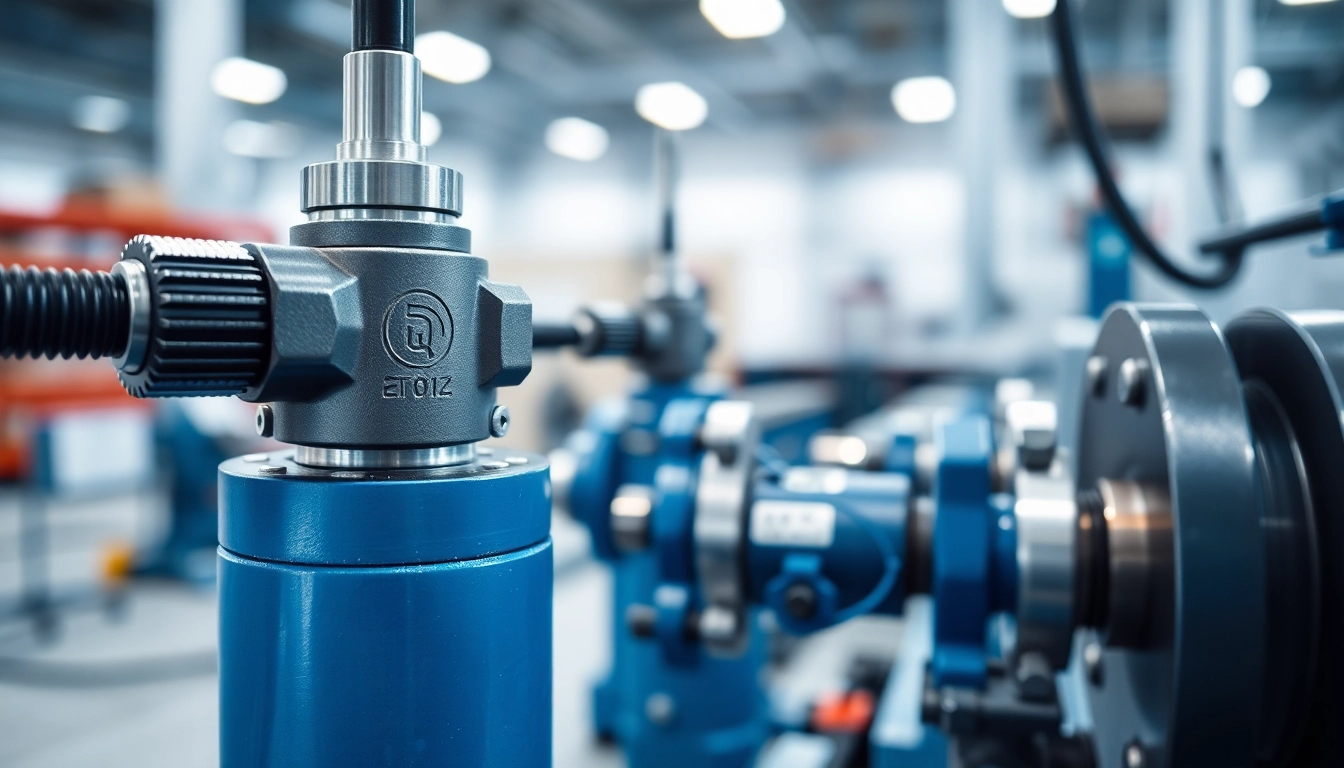Understanding Dumper Rental: Types and Applications
In the fast-paced world of construction, landscaping, and industrial projects, efficiency, versatility, and cost-effectiveness are key. One equipment rental that consistently proves invaluable across these sectors is the dumper. Whether moving aggregate across a rugged site or transporting waste away from a construction zone, selecting the right dumper and understanding its applications can significantly influence project outcomes. For those embarking on projects that require material handling over short to medium distances, exploring Dumper rental options provides a flexible and economical solution tailored to diverse needs.
Different Types of Dumpers Available for Rent
Mini Dumpers
Mini dumpers are compact, lightweight machines designed to operate effectively in confined spaces. Typically ranging from 0.25 to 1 tonne capacity, they excel in navigating tight spots such as residential projects, narrow alleyways, or interior sites. For instance, the Mini Dumper 0.25T allows operators to move up to 250kg of materials with ease, making it perfect for delicate or space-restricted tasks. These dumpers often feature simple controls and are easy to load with shovels or mechanical attachments like mini shovels.
Micro Dumpers
Micro dumpers are even smaller than standard mini dumpers, often with a capacity of 1 tonne or less. They are designed for extremely tight spaces and often feature narrow tracks or low profiles to fit through standard doorways or gates. Cyril Johnston Hire’s micro dumper exemplifies this category, capable of maneuvering in wet or uneven ground where larger machinery might struggle. They are ideal for interior renovations and urban construction projects where access is limited.
Skid Steer and Loaders
Skid steer loaders equipped with dumping buckets or attachments can perform similar tasks but often at larger capacities, typically from 1 to 3 tonnes. These versatile units can be rented for excavation, loading, and hauling projects, contributing to streamlined workflows. Access to the site is a significant consideration—many rental providers offer models designed specifically for urban and tight-space work.
Standard and Articulated Dumpers
For larger-scale projects, front or articulated dumpers with capacities from 3 tonnes upwards are common. These machines are designed to carry heavy loads over uneven terrain, with articulated models offering enhanced mobility. Sunbelt Rentals, for example, offers a range of dumpers engineered for substantial load capacities, suitable for excavation sites and large infrastructure projects.
Tracked and Swivel Dumpers
Tracked dumpers provide stability and traction on muddy or rough terrain, making them ideal for outdoor and loose substrate conditions. Swivel dumpers feature a turntable that allows the skip to rotate, facilitating unloading into tight spaces or into skips and containers efficiently. The choice of dumper type directly depends on the terrain, space constraints, and project scale.
Common Uses in Construction, Landscaping, and Industry
Construction Sites
Dumpers are essential for transporting construction materials such as soil, gravel, aggregate, and concrete. They significantly reduce manual labor and increase productivity by enabling quick loading and unloading over various distances. For example, mini dumpers are frequently used to deliver materials across complex layouts where large machinery cannot operate due to space limitations.
Landscaping Projects
In landscaping, dumpers facilitate the movement of topsoil, mulch, stones, and waste. Their ability to access restricted areas, such as residential gardens and small parks, makes them invaluable for projects that demand precision and minimal disruption. Micro and mini dumpers are especially popular for residential renovations due to their size and maneuverability.
Industrial Waste and Waste Management
Industrial sites generate significant amounts of waste material. Dumpers streamline the process of collecting, transporting, and dumping waste into skips, containers, or designated disposal areas. Their use helps meet environmental and safety standards while maintaining operational efficiency.
Agriculture and Quarrying
The versatility of dumpers extends into agriculture, where they are used for moving feed, fertilizers, and harvested crops. In quarries and mining, dumpers handle bulk materials, often under tough site conditions, demonstrating their durability and reliability.
Choosing the Right Dumper for Your Project
Assessing Project Needs
The first step in selecting the appropriate dumper is thorough assessment of project requirements. This includes evaluating the volume and type of material to be moved, the site’s size and terrain, access restrictions, and any logistical challenges. For instance, small residential projects benefit from micro or mini dumpers, while large construction sites require larger, high-capacity models.
Capacity and Size Compatibility
Understanding load capacities ensures that the dumper can handle anticipated material volumes without overloading, which could cause breakdowns or safety risks. Matching dumper size to site dimensions prevents operational bottlenecks. For example, choosing a 1-ton dumper for a small backyard project offers sufficient capacity while maintaining maneuverability.
Rental Terms, Cost, and Duration
Rental agreements vary based on duration, usage, and equipment type. Short-term hires are cost-effective for one-off projects, while long-term rentals are suitable for ongoing operations. Comparing rental prices—such as the typical £75 for a day’s hire of a 1-ton dumper from Balloo Hire—helps control expenses. Always review terms regarding damages, insurance, and operator responsibilities.
Safety, Maintenance, and Operator Requirements
Operators should possess proper training and certification, especially for larger or more complex units. Ensuring that demand safety standards are upheld through regular maintenance, daily pre-operation checks, and adherence to safety protocols minimizes accidents and downtime. Rental providers often offer operational guidance and support services.
How to Optimize Dumper Rental for Your Business
Strategic Planning and Site Assessment
Before renting equipment, conduct a comprehensive site assessment to identify logistical constraints, terrain challenges, and material flow processes. Effective planning reduces unnecessary equipment transport and minimizes delays. For example, a detailed site map and material flow analysis enable optimal placement of dumpers and loading points.
Leveraging Rental Options for Cost Efficiency
Flexible rental durations and multi-week or multi-month contracts often yield discounts. Combining dumper rental with other equipment from a single provider, such as loaders or excavators, can improve negotiating power. Additionally, regular maintenance and proper operator training extend equipment lifespan and reduce unexpected costs.
Ensuring Compliance and Safety Standards
Compliance with UK health and safety legislation, including operator training and machine inspections, is mandatory. Incorporate safety protocols like wearing PPE, understanding emergency procedures, and safeguarding ground stability. Using well-maintained equipment also reduces risk of failure, supporting project integrity.
Top Tips for Using a Dumper Rental Effectively
Pre-Operation Checks and Operator Training
Perform thorough visual inspections daily—checking fluid levels, brakes, tires, and controls—to prevent failures. Proper operator training on machine controls, safety features, and loading techniques maximizes productivity and safety. Many rental providers include training programs or instructional materials.
Optimizing Loading Techniques and Ground Conditions
Ensure materials are evenly distributed within the skip to avoid tipping or uneven wear. Avoid overloading, which can reduce machine lifespan and increase safety hazards. Also, assess ground conditions—soft or muddy terrain may necessitate tracked dumpers or additional ground stabilization measures.
Maximizing Productivity and Minimizing Downtime
Plan work sequences to ensure continuous operation, with scheduled maintenance and timely refueling or recharging. Use of GPS or telematics can monitor machine performance, allowing proactive maintenance and reducing unplanned downtime. Clear communication among team members ensures efficient workflow.
Performance Metrics and Case Studies for Dumper Rentals
Measuring Efficiency Gains and Cost Savings
Tracking metrics such as loads moved per day, fuel consumption, and equipment uptime provides insights into rental efficiency. For example, employing a mini dumper might cut labor costs by 30% on a landscaping project by reducing manual labor and speeding up material transfer.
Real-World Success Stories in UK Construction
A notable case involved a residential developer who rented mini dumpers for site clearance and groundwork. By integrating dumper rental into their workflow, they achieved a 25% reduction in project duration, saving both time and costs while maintaining safety standards. Such examples underscore the value of effective dumper utilization.
Future Trends in Dumper Rental Technology and Service
Advancements include electric and hybrid dumpers, IoT-enabled telematics for real-time monitoring, and automation features that further enhance safety and efficiency. Rental companies are also expanding their service offerings, providing comprehensive training and remote support, ensuring clients remain equipped with the latest technology for optimal performance.


